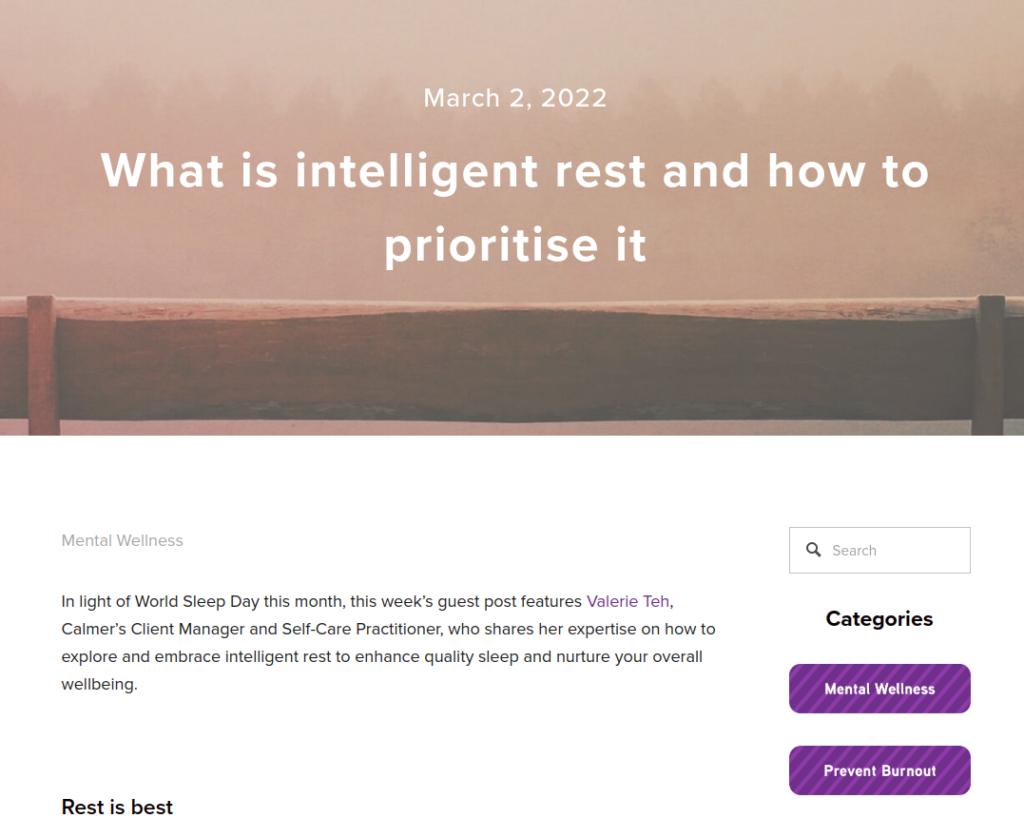Publication
Calmer
Abstract
In light of World Sleep Day this month, this week’s guest post features Valerie Teh, Calmer’s Client Manager and Self-Care Practitioner, who shares her expertise on how to explore and embrace intelligent rest to enhance quality sleep and nurture your overall wellbeing.
Web and Email Links
Related Listings
Journal
Biofeedback and Self-regulation
The purpose of this study was to assess the central nervous system effects of the relaxation response (RR) in novice subjects using a controlled, within- subjects design and topographic EEG mapping as the dependent measure. Twenty subjects listened to a RR and control audiotape presented in a counterbalanced order while EEG was recorded from 14 scalp locations. The RR condition produced greater (p < .0164) reductions in frontal EEG beta activity relative to the control condition. N […]
Journal
Psychiatry
In the Western world today, there is a growing interest in nonpharmacological, self-induced, altered states of consciousness because of their alleged benefits of better mental and physical health and improved ability to deal with tension and stress. During the experience of one of these states, individuals claim to have feelings of increased creativity, of infinity, and of immortality; they have an evangelistic sense of mission, and report that mental physical suffering vanish (Dean). […]
Journal
Behavioral Medicine
The authors assessed data from 1,148 outpatients in a 10-week medical symptom reduction program to determine the effectiveness of a behavioral medicine intervention among somatizing patients. The program included instruction in the relaxation response, cognitive restructuring, nutrition, and exercise. Before and after the intervention, the patients were evaluated on the Symptom Checklist-90 Revised (SCL-90R), the Medical Symptom Checklist, and the Stress Perception Scale. They were di […]

